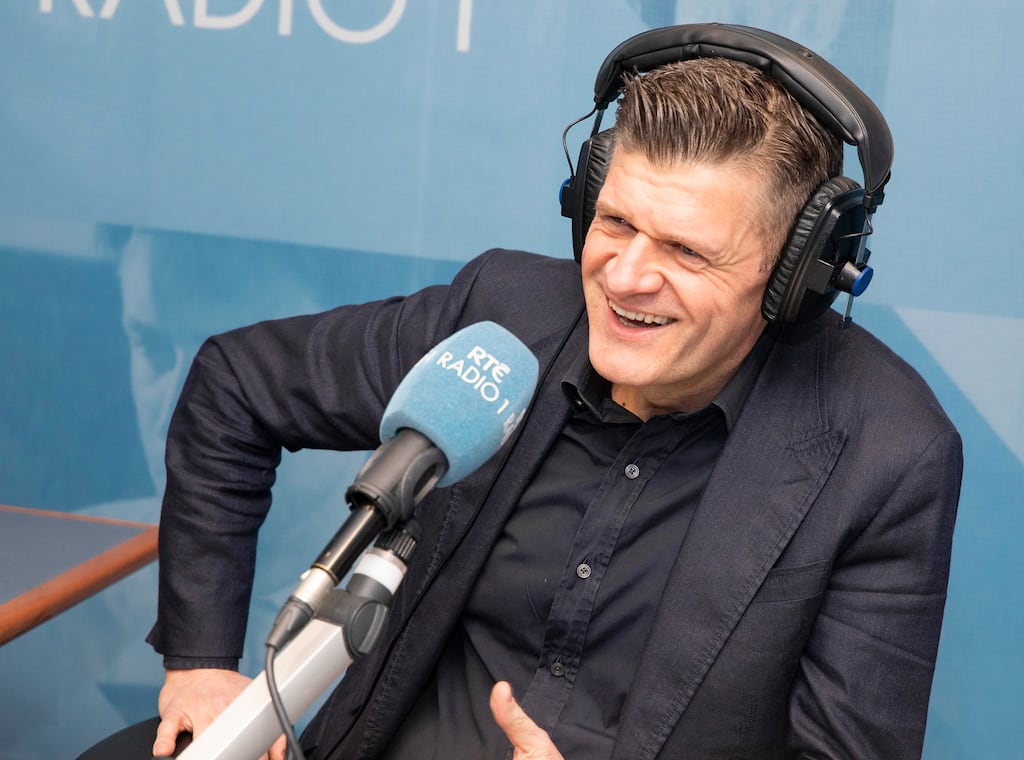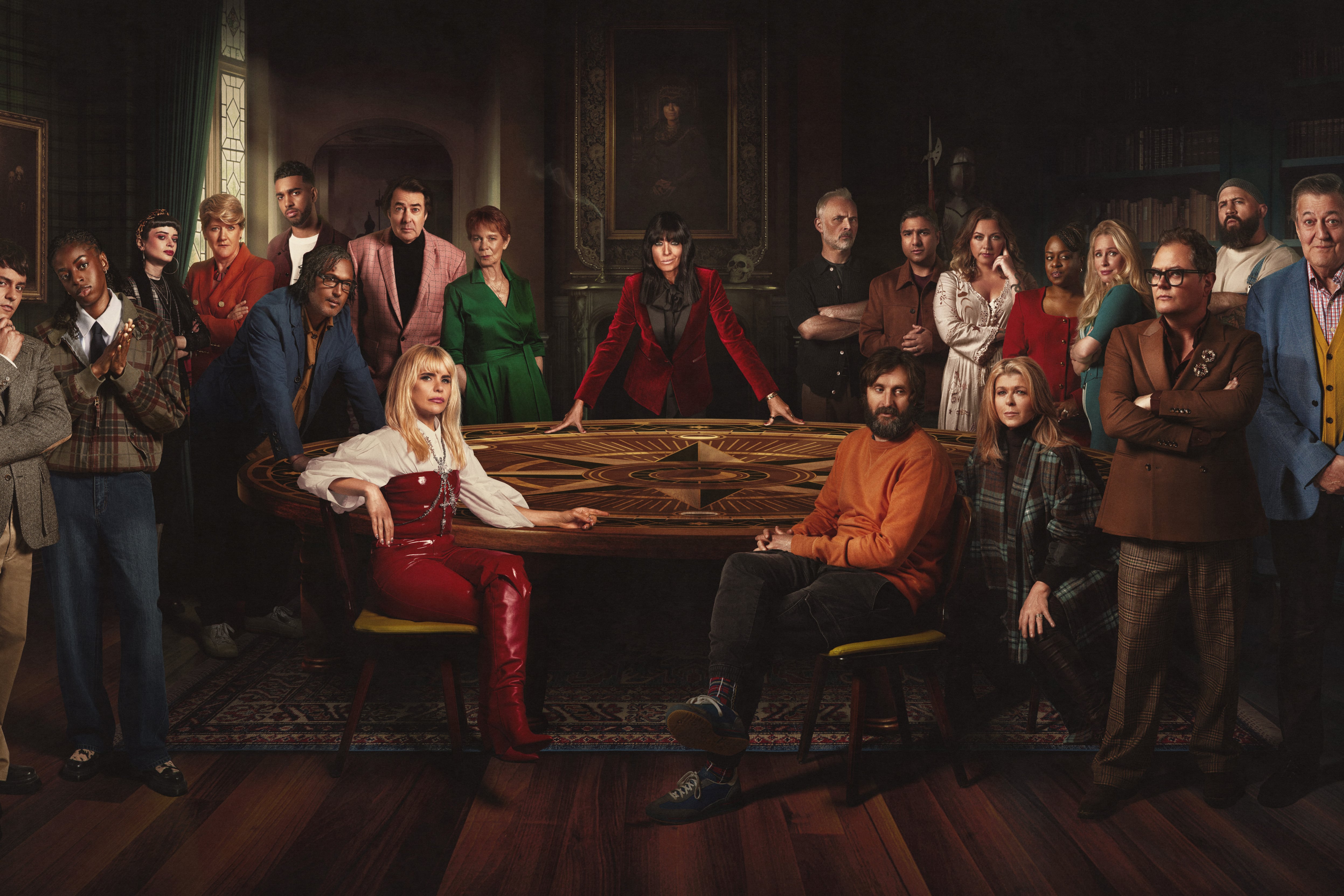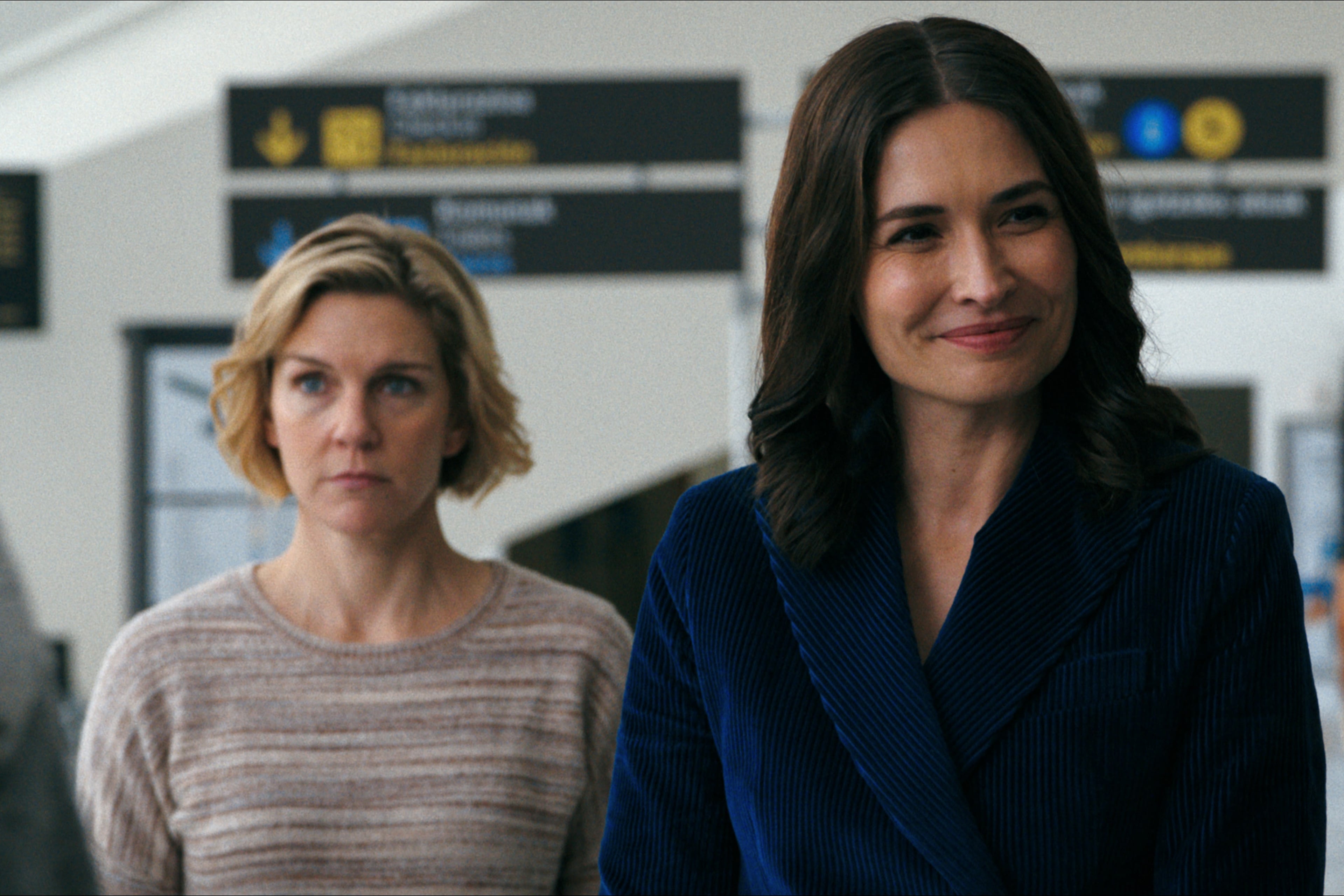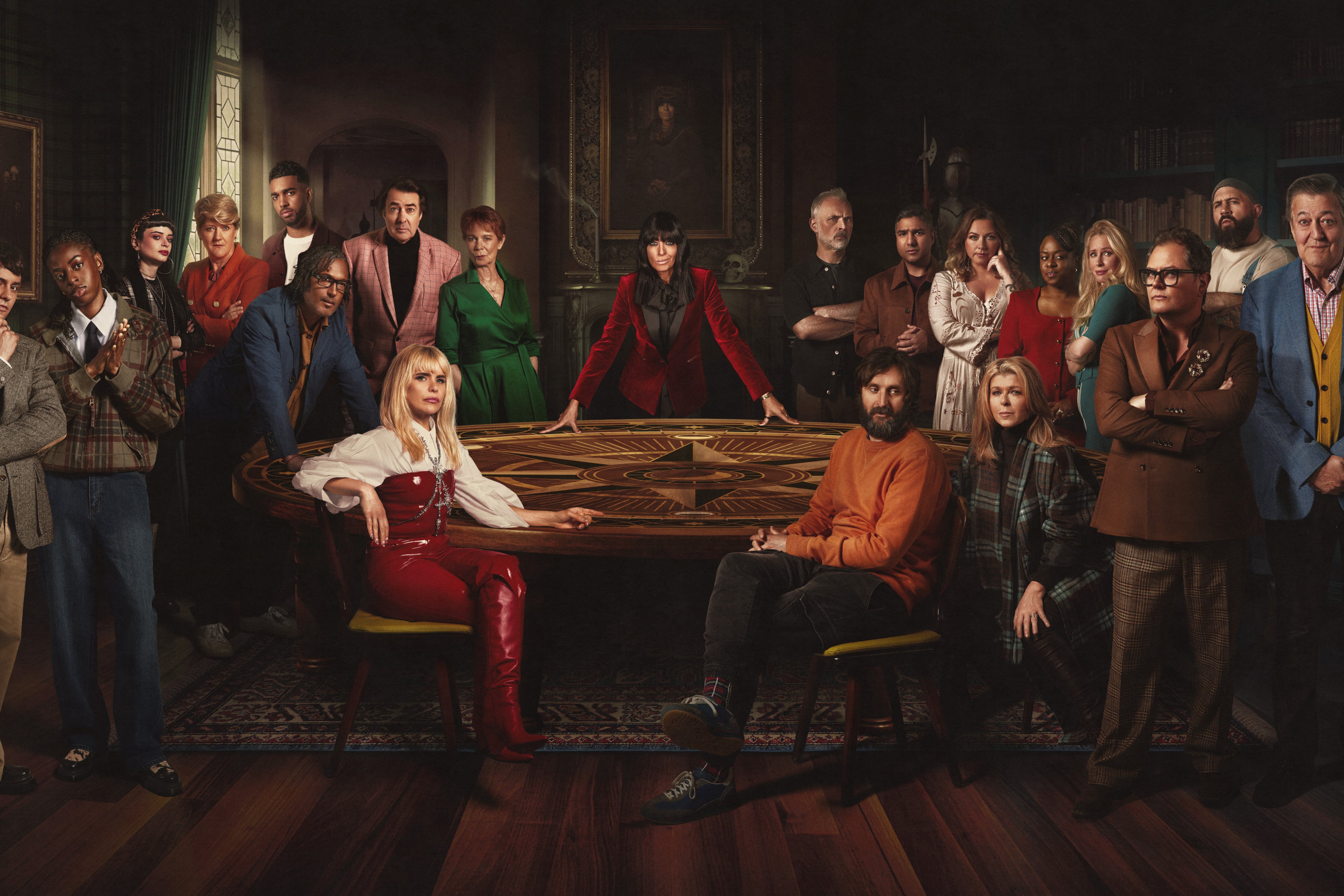It may be a fleeting reign, but right now Brendan O’Connor (RTÉ Radio 1, Saturday and Sunday) is king of the Radio 1 castle.
From his weekend perch, O’Connor has spent the past couple of years looking on as the station’s other big names have departed amid varying degrees of amicability, clearing his path to the throne.
But the presenter’s ascension hasn’t occurred purely by default. His show’s mix of political debate, celebrity chat and – unlikely as it sounds – reflective rumination has proved an audience winner.
It’s a formula neatly exemplified by O’Connor’s most recent programmes, his interview with Jeremy Irons providing the A-list stardust on Saturday. The English actor is promoting his new film, Palestine 36, set during the Arab Revolt against British rule of the territory.
READ MORE
Irons touches on the present-day ramifications of Britain’s colonial mandate – “The English legacy in Palestine is something we should be ashamed of” – but is more animated when discussing an altogether different, if not unrelated, oppressive regime: the boarding school he attended from the age of seven.
The actor evokes a harsh environment, less educational establishment than Lord of the Flies-style boot camp: he recalls being squashed into a bin by fellow pupils.
[ RTÉ Radio 1 most popular station as 2FM loses 24,000 listeners since last surveyOpens in new window ]
The whole system, he says, was geared towards producing men with a suitably stiff upper lip, capable of running an empire. “You create a personality that copes with being in the jungle,” he says. “Which is where you are with boys that age.”
It says something of Irons’s own phlegmatic presence that his reminiscences are bracing rather than bleak, but thankfully things get jollier.
He recounts rebelling against the emotional repression of his upbringing by becoming an actor – “I was attracted to being a rogue and a vagabond” – and speaks fondly of his life in west Co Cork, where he shares a castle with his wife, Sinéad Cusack.
The exuberance of such items helps explain O’Connor’s impressive ratings surge
Cue much ribbing from O’Connor about the need for stairlifts in such a dwelling. But otherwise the host hears out Irons in engaged fashion, throwing only the occasional curveball: “You always radiated a certain sexual energy,” he says of his guest’s screen performances.
By the time the encounter is brought to a close by a ringing sound – “Oh, that’s my phone,” Irons says apologetically – the pair have struck up an absorbing chemistry.
An even easier familiarity pervades O’Connor’s interview with the writer Colm Tóibín, who is on the show to share a selection of love stories. “There’s no schmaltz here,” the host comments on his guest’s idiosyncratic choices, from Nina Simone covers of Thomas Moore melodies to the French new-wave film Jules et Jim, the latter ending with “suicide and murder”, in Tóibín’s cheerful telling.
“These are not going to be happy-ever-after stories, I can see,” O’Connor remarks drily.
If conventional romance is in short supply, there’s much in the way of diverting anecdotes and aesthetic musings. Whether describing the disorienting experience of taking driverless cabs in San Francisco or the difficulty of writing while renting a house on one’s own, Tóibín exudes intellectual vibrancy and gossipy energy, to which O’Connor responds eagerly.
The exuberance of such items helps explain O’Connor’s impressive ratings surge: more than 400,000 listeners tune in every weekend, figures surpassed only by the hardy perennial Morning Ireland. Not that he has mellowed. Originally famous as a snarkily contentious columnist, O’Connor still possesses the instinct to provoke: when discussing immigration with his guests on Sunday’s newspaper panel, the host wonders if “we were too generous” when Ukrainian refugees first arrived in 2022.
His current reign may end up as an interregnum: with Radio 1’s new schedule launching on Monday, there’ll soon be a whole new raft of pretenders to contend with. But, for now, O’Connor wears the crown lightly.
Anyone wishing to hear more of Tóibín’s enthusiastic opinions is directed to the new season of Culture File Presents: The Comfort Zone (Lyric FM, Wednesday), where he plays the highbrow foil to the more cultishly inclined presenter Luke Clancy.
The series has already featured Tóibín passing judgment on the 1970s krautrock band Neu! and on John Boorman’s movie Hope and Glory in informed and amused manner. This recommendation comes with a caveat, however, as a glitch hits transmission of the latest edition: the programme goes Awol on the night, hastily replaced by an automated soundtrack of light classical music.
It’s an unfortunate foul-up, robbing listeners of Tóibín and Clancy’s enjoyably esoteric exchanges. Luckily, however, the programme is also available as a podcast.
There are multiple opportunities to hear Jó Johnny Joe (RTÉ Raidió na Gaeltachta and Radio 1, Sunday), a slow-burning family drama as Gaeilge, written and directed by Darach Mac Con Iomaire. Not only is the nine-part series available on two stations and as a podcast, but it can also be accessed with subtitles on YouTube, a neat way of bringing the story to those of us whose Irish is shamefully subpar.
In fact, most listeners with school-level Gaeilge should be able to follow the action, which unfolds through bursts of terse dialogue, interspersed by Irish-language cover versions of classic songs. (The title is a riff on Chuck Berry’s Johnny B Goode.)
The plot is also simple, at least on the face of things. As the marriage of feckless would-be musician Johnny (Darach Ó Dubháin) and his long-suffering wife, Maggie (Sorcha Ní Chéide), falls apart, their daughter, Jo-B (Ella Nic Domhnaill), sides with her increasingly destitute and delusional father, even as she faces her own problems at school.
The narrative takes its time to develop, but the listener is pulled in by the production and the performances. Gradually, even the rustiest Irish student becomes attuned to the characters’ sparky conversation, while the ASMR-laden soundscape adds to the atmosphere of complicity and uncertainty: what happened outside Johnny’s school years ago, why is he the only one talking to his father, Joe Mór (Macdara Ó Fátharta), and what secret is Maggie keeping from Jo-B?
As much soap opera as psychological drama, Mac Con Iomaire’s imaginatively realised series grows more compelling the longer it goes on. Go, Johnny, go.
Moment of the week
On Sunday The Anton Savage Show (Newstalk) gets the inside scoop on the week’s big audio story, the removal of Ivan Yates from the hit podcast Path to Power following revelations that the broadcaster and former minister had coached Jim Gavin, Fianna Fáil’s presidential candidate.
By happy coincidence, one of the guests on Savage’s newspaper panel is the Today FM presenter Matt Cooper, co-host and originator of the podcast. Cooper explains why he asked Yates to leave – “The important thing is the transparency for our listeners” – while describing the ensuing “difficult” conversation with his erstwhile colleague: “It left me feeling quite sad.”
His fellow journalist guest Lise Hand is less upset by Yates’s departure. “There’s no shortage of clever, opinionated, confident men sitting in studios,” she laconically observes. “Long may it continue,” Savage replies, jauntily. Maybe he spots an opening in the market.
















